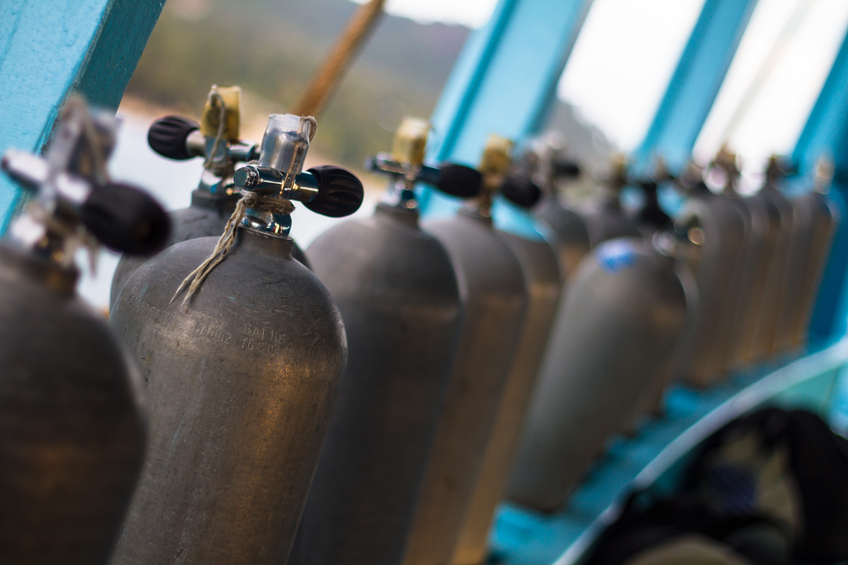Minnesota Mechanical and Ethics 24 PDH Discount Package 2
Courses in this Package
Basic Machines Part 1 (M03-035)
An Introduction to Industrial Compressed Air Systems (M03-042)
Fundamentals of Gas Turbine Engines (GTEs) (M04-041)
Principles of Hydraulic and Pneumatic Systems (M04-043)
Introduction to Refrigeration Systems (M08-008)
Ethics in Professional Practice (LE2-007)

This online engineering PDH course discusses the six simple machines: the lever, the block, the wheel and axle, the inclined plane, the screw and the gear. When you familiarize with the principles of these simple machines, you can readily understand the operation of complex machines.
A machine is any device that helps you to do work. It may help by changing the amount of force or the speed of action. Machines may also be used to change the direction of a force or in other cases transform energy; for example, a generator transforms mechanical energy into electrical energy. Complex machines are basically combinations of two or more simple machines.
This 3 PDH online course is applicable to engineers, designers, manufacturers and anyone interested to gain an understanding of basic machine operation.
This PE continuing education course is intended to provide you with the following specific knowledge and skills:
- Learning about the principles of levers, their different classes and mechanical advantages
- Understanding the basics of the block and tackle, their different configurations and mechanical advantages
- Understanding the basics of wheel and axle and understand their mechanical advantages
- Learning about the mechanical advantages of inclined planes
- Familiarizing with the uses of the screw and jack
- Understanding the basics of gears, their different types and mechanical advantages
In this professional engineering CEU course, you need to review Chapters 1 through 6, of the Naval Education and Training Professional Development and Technology Center "Basic Machines" NAVEDTRA 14037 - training course.
Once you complete your course review, you need to take a multiple-choice quiz consisting of twenty (20) questions to earn 3 PDH credits. The quiz will be based on this NAVEDTRA publication.
Upon successful completion of the quiz, print your Certificate of Completion instantly. (Note: if you are paying by check or money order, you will be able to print it after we receive your payment.) For your convenience, we will also email it to you. Please note that you can log in to your account at any time to access and print your Certificate of Completion.

This online engineering PDH course provides an overview of industrial compressed air systems. It describes the basic components of an industrial compressed air system and characterizes its applications in different industries.
Compressed air is used widely throughout industry and is often considered the "fourth utility" at many facilities. Almost every industrial plant, from a small machine shop to an immense pulp and paper mill, has some type of compressed air system. In many cases, the compressed air system is so vital that the facility cannot operate without it.
This 3 PDH online course is applicable to engineers, designers, contractors, compressed air manufacturers and others seeking an understanding of the basics of industrial compressed air systems.
This PE continuing education course is intended to provide you with the following specific knowledge and skills:
- Learning about the different types of compressors
- Learning about compressor prime movers
- Learning about compressed air controls
- Familiarizing with the various types of accessories used in compressed air systems
- Understanding the uses of compressed air systems
Upon successful completion of the quiz, print your Certificate of Completion instantly. (Note: if you are paying by check or money order, you will be able to print it after we receive your payment.) For your convenience, we will also email it to you. Please note that you can log in to your account at any time to access and print your Certificate of Completion.

This online engineering PDH course introduces the history and development of gas turbine engines (GTEs).
This course will help you become familiar with the basic concepts used by GTE designers, follow discussions of how the Brayton cycle describes the thermodynamic processes in a GTE, and learn how various conditions and design limitations affect GTE performance. This course also discusses how a GTE develops and uses hot gases under pressure.
This 4 PDH online course is applicable to engineers, designers, manufacturers and anyone who wants to gain an understanding of the basics of gas turbine engines. After completing the course, you should have the basic knowledge to be able to describe the principal components of GTEs and their construction, the GTE auxiliary systems, and also be familiar with the nomenclature related to GTEs and GTE technology.
This PE continuing education course is intended to provide you with the following specific knowledge and skills:
- Understanding the principles and basic concepts of a GTE
- Understanding how the Brayton cycle describes the thermodynamic processes in a GTE
- Learning how various conditions and design limitations affect GTE performance
- Understanding how a GTE develops and uses hot gases under pressure
- Familiarizing with the principal components of GTEs and their construction
- Familiarizing with the GTE auxiliary systems and the nomenclature related to GTEs and GTE technology
In this professional engineering CEU course, you need to review Chapter 1, “Fundamentals of Gas Turbine Engines” of the Naval Education and Training Professional Development and Technology Center “Gas Turbine Systems Technician (Electrical) 3/Gas Turbine Systems Technician (Mechanical) 3, Volume 2” NAVEDTRA 14114-training course.
Upon successful completion of the quiz, print your Certificate of Completion instantly. (Note: if you are paying by check or money order, you will be able to print it after we receive your payment.) For your convenience, we will also email it to you. Please note that you can log in to your account at any time to access and print your Certificate of Completion.

This online engineering course presents the basic principles of hydraulics and pneumatics along with their various components followed by discussing the maintenance procedures associated with these systems.
In automotive and construction equipment, the terms “hydraulic” and “pneumatic” describe a method of transmitting power from one place to another through the use of a liquid or a gas which obey certain physical laws and principles discussed in this course.
This 4 PDH online course is intended for mechanical and industrial engineers, as well as other technical professionals interested in gaining a better understanding of the principles of hydraulic and pneumatics systems.
This PE continuing education course is intended to provide you with the following specific knowledge and skills:
- Understanding the operating principles of hydraulic systems
- Identifying operation characteristics, component functions, and maintenance procedures of a hydraulic system
- Understanding the operating principles of pneumatic systems
- Identifying operational characteristics and service procedures applicable to heavy-duty compressors
Upon successful completion of the quiz, print your Certificate of Completion instantly. (Note: if you are paying by check or money order, you will be able to print it after we receive your payment.) For your convenience, we will also email it to you. Please note that you can log in to your account at any time to access and print your Certificate of Completion.

This online engineering course provides necessary information to understand the principles and theory of refrigeration, the components of mechanical refrigeration systems, and the types of refrigerants and associated equipment. This course also discusses the methods used for installing, maintaining, and repairing refrigeration equipment, including domestic refrigerators and freezers.
Refrigeration is the process of removing heat from an area or a substance. It is usually done by an artificial means of lowering the temperature, such as by the use of ice or mechanical refrigeration, which is a mechanical system or apparatus, designed and constructed to transfer heat from one substance to another.
This 8 PDH online course is intended for HVACR, mechanical and industrial engineers, manufacturers, maintenance staff, and others seeking a basic understanding of refrigeration systems.
This PE continuing education course is intended to provide you with the following specific knowledge and skills:
- Understanding the physics behind heat and refrigeration
- Learning about the refrigeration cycle and its different mechanical components
- Familiarizing with the different types of refrigerants
- Understanding the safety precautions associated with refrigerants
- Familiarizing with the different types of refrigerant equipment
- Understanding the installation procedures for refrigerant equipment
- Learning about the maintenance, service, and repair procedures associated with refrigerant equipment
Upon successful completion of the quiz, print your Certificate of Completion instantly. (Note: if you are paying by check or money order, you will be able to print it after we receive your payment.) For your convenience, we will also email it to you. Please note that you can log in to your account at any time to access and print your Certificate of Completion.

In this online engineering PDH course, background on the philosophical models that guide ethical behavior is discussed and then applied to specific situations in engineering codes of ethics. This course is based on the American Society of Mechanical Engineers Professional Practice Curriculum, Volume 8, Section: Engineering Ethics.
Many engineering organizations have drafted codes of ethics to which their members are required to commit. Generally, these codes are quite similar and are based on a few fundamental principles which provide guidance to professional engineers in common situations. Nevertheless, there are many difficult or ambiguous situations in which the best ethical solution is difficult to determine.
This 2 PDH online course is intended primarily for engineers seeking to learn ethical principles and how to apply them to their professional practice.
This PE continuing education course is intended to provide you with the following specific knowledge and skills:
-
Determining ethical behavior using several philosophical models
-
Evaluating a practical situation in terms of a professional code of ethics
-
Identifying situations that represent conflicts of interest and formulate a proper response
-
Applying the standards of professional ethics in technical communication
-
Recognizing environmental impacts of engineering work
-
Considering principles of sustainable development in the performance of professional duties
In this professional engineering CEU course, you need to review "Ethics in Professional Practice" published by the American Society of Mechanical Engineers (ASME). (This course document is reproduced by permission of the ASME (www.asme.org). You may also download from or view this course document on the ASME's website by clicking on Ethics in Professional Practice).
Once you complete your course review, you need to take a multiple-choice quiz consisting of fifteen (15) questions to earn 2 PDH credit. The quiz will be based on this ASME publication.
Upon successful completion of the quiz, print your Certificate of Completion instantly. (Note: if you are paying by check or money order, you will be able to print it after we receive your payment.) For your convenience, we will also email it to you. Please note that you can log in to your account at any time to access and print your Certificate of Completion.